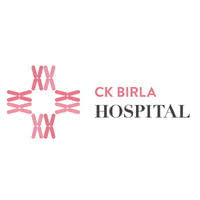

C K Birla Hospital
Pulmonologist Clinic
About Clinic
We like to think that we are an extraordinary practice that is all about you - your potential, your comfort, your health, and your individuality. You are important to us and we strive to h...read more
Clinic Timing
Clinic Location
Clinic Images
Videos
The content of this show is an awareness initiative of Philips. The viewers are advised not to replicate to any information included herein or to get any tests done or treat any health problem without consulting their Doctor(s). The views expressed in the show are individual opinion of the Doctor(s). Philips shall not be liable for any damages arising from the contents of this show, including but not limited to direct, indirect, incidental, punitive and consequential damages.
Good mroning, I am Dr Ashok Rajput, a Pulmonologist, practising in Delhi. Today I will talk to you about very common disease, that is, Bronchial Asthma.
Asthma starts in early childhood and may persist in adult life. It is an episodic disease which is intermitted initially. Later, if left untreated, it become continuous and perennial. Whne one is exposed to dust, fumes, pollen and smoke then the inner lining of the airways swells and becomes inflammed and the lumen narrows. So it becomes difficult to breathe. So these patients get cough, wheezing, snoring and running nose.
The diagnosis of this condition is very easy. What you have to do?
You do Spirometry or a lung function study in which you blow into a computer and you get a graph. You repeat the test after giving bronchodilators, say 15-20 minutes. If you find an improvement in FEV1, one of the parameters, more than 12% you clinch a diagnosis of Asthma.
The treatment of Asthma is very simple these days. The main stay of treatment is inhaled corticosteroids which is given through the inhalers. There are many types of inhalers available with good drugs which act for 12 hours which you need to take only in morning or evening and your Asthma gets controlled. When I say controlled, that means you will no longer have cough, wheeze or sneeze. You can sleep undisturbed in the night and can perform all the activities. You can lead a normal life.What you require is small dose of this inhaler.
Thank you for listening to me.
If you want to contact us, you can come to our clinic or contact through Lybrate.
Good morning I am DR Rajput, Pulmonologist. I deal with the respiratory disease which include Asthma, COPD and sleep apnea. The sleep disorder, sleep apnea is very common these days. People snore and they do not know that they have a disease.
I am going to talk about, "Why do people snore and how it affects your health?"
You know the structure. We breath through nose and we eat through mouth. There is a pasaage in the neck behind the tongue where the food and the air we inhale pass through it. But when we sleep, our posture changes due to which muscles get relaxed and makes the passage narrow. Then the tongue drops and makes it further narrow. If you are over weight, due to the neck fat, the passage gets further narrow. So, when the air passes through the narrow passage, it produces snoring. The stage beyond snoring when the two valves in the neck meet each other, the air flow stops and cause Apnea. When the air flow stops, the oxygen level in the body goes down, the brain gets aroused and sends the signal to these muscles and then you ultimately snot and this snotting opens the passage a bit. So, this repeatedly occur in the night and this results in oxidative stress. BEcause 1/3rd of your life, you are sleeping, i.e, 8 hours out of 24 hours.
So, during sleep, if the air flow is less which is called Hypopnea, the air flow stops is called Apnea. This leads to Endothelial dysfunction, which leads to High blood pressure, diabetes, cardiac problems.
So, it is important to know about Sleep Apnea and its relation to lifestyle diseases like hypertension, diabetes, cardio vascular diseases.
The diagnosis is very simple these days which is Polysomnography. It is a sleep study in which we record the brain EEG, EOG, EMG, air flow, snoring, oxygen saturation ECG. This gives an index which is called Apnea Hypopnea Index. If the Index is more than 5 than you have to be treated.
The commonest treatment which is available these days is the CPAP Therapy. CPAP is a very simple therapy. There is a mask which fits on the nose and it is connected to a hose pipe to a machine. The machine gives pressure to the air and this pressure splints this air way and the air flow is maintained. Oxygenation maintains, snoring stops and oxidative stress dissapears. This helps in controlling blood pressure, the diabetes become normal and the risk of cardio vacular problems decreases.
Thank you very much for listening to me.
If you want to consult us, come to our clinic or contact through Lybrate.
Doctor in C K Birla Hospital
Doctor in C K Birla Hospital
Dr. (Brig.) Ashok Rajput
Patient Review Highlights
Very helpful
5 reviewsknowledgeable
3 reviewsWell-reasoned
1 reviewsSensible
1 reviewsCaring
1 reviews